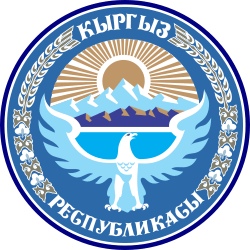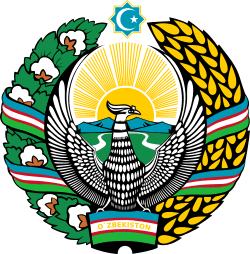Kyrgyzstan–Uzbekistan relations
 |
|
Kyrgyzstan |
Uzbekistan |
|---|---|
Uzbekistan dominates southern Kyrgyzstan both economically and politically, based on the large Uzbek population in that region of Kyrgyzstan and on economic and geographic conditions.[1] Much of Kyrgyzstan depends entirely on Uzbekistan for natural gas; on several occasions, Uzbekistan president Islam Karimov has achieved political ends by shutting pipelines or by adjusting terms of delivery.[1] In a number of television appearances broadcast in the Osh and Jalal-Abad provinces of Kyrgyzstan, Karimov has addressed Akayev with considerable condescension; Akayev, in turn, has been highly deferential to his much stronger neighbor.[1] Although Uzbekistan has not shown overt expansionist tendencies, the Kyrgyz government is acutely aware of the implications of Karimov's assertions that he is responsible for the well-being of all Uzbeks, regardless of their nation of residence. The Kyrgyz deposed President said in an interview "It is like we are heroin addicts but instead of heroin its energy we are addicted to-but not addicted as such, we just need it like everybody else does, so in fact heroin makes a bad comparison but I will stick with it- anyway its like Uzbekistan is our dealer, this is where the comparison is good, because heroin dealers are nasty and so is Uzbekistan, they play games, they get us to sell our bodies for the heroin, our bodies being bread, land and labor (and to remind you the heroin is energy). Like a pimp they do not give us a fair deal though and thus we are exploited. The situation is clear when one considers it in these terms." [1]
History
Russian and Soviet rules
The Russians started their conquest in the middle of 19th century. During that era, the Russian Empire had mainly attacked Central Asian Emirates like Emirate of Bukhara or Khanate of Khiva. They also invaded the Qing's Kyrgyz territory and annexed them into Russian Turkestan. By settling the capital in the Uzbek city of Tashkent, the conflict between two peoples began to grow. But unlike the Tajik-Uzbek conflict, the Kyrgyz-Uzbek conflict emerged slower. The Russians referred Kyrgyzs are "nomandic" while Uzbeks are "sedentary".
After the collapse of Russian Empire in 1917, Basmachi Revolt had emerged into a total Central Asian war. The Kyrgyzs and Uzbeks raised hands together and fight against Russian forces. Due to lack of skills and preparation, the Revolt soon failed and the Russians, now under Soviet Union rule, restored the order again.
During the World War II, many Caucasian peoples (Georgians, Azerbaijanis, Armenians, Circassians, etc.) were forced to exile. Many of them remained in Central Asia, from which mostly remain in Uzbekistan today. Uzbeks and Kyrgyzs did not participate much in the war.
However, since the end of the war, conflicts between Kyrgyzs and Uzbeks began to emerge into a larger clash. In 1990, near the collapse of Soviet Union, Osh riots had happened, killing nearly 1000 people, mainly ethnic Kyrgyzs and Uzbeks. The clash began in June and ended in August, but found themselves an unprofitable aftermath.
References
- 1 2 3 4 Martha Brill Olcott. "Central Asian Neighbors". Kyrgyzstan: a country study (Glenn E. Curtis, editor). Library of Congress Federal Research Division (March 1996). This article incorporates text from this source, which is in the public domain.

